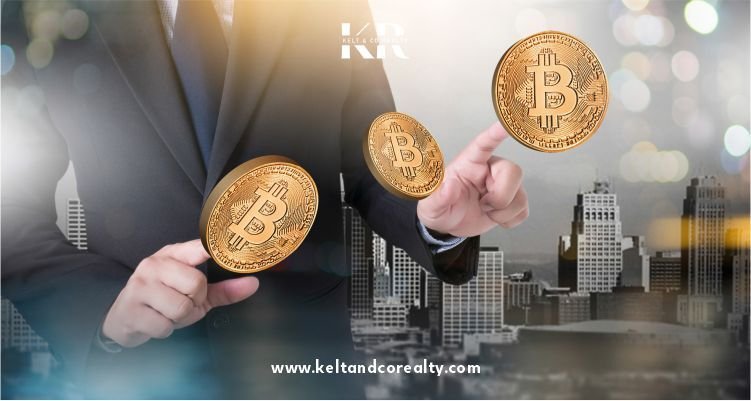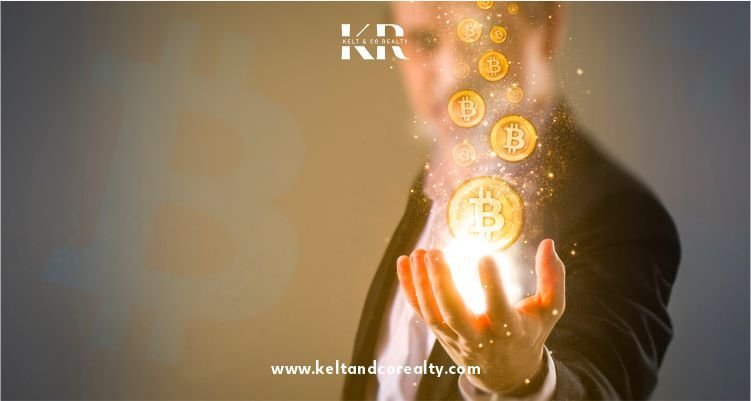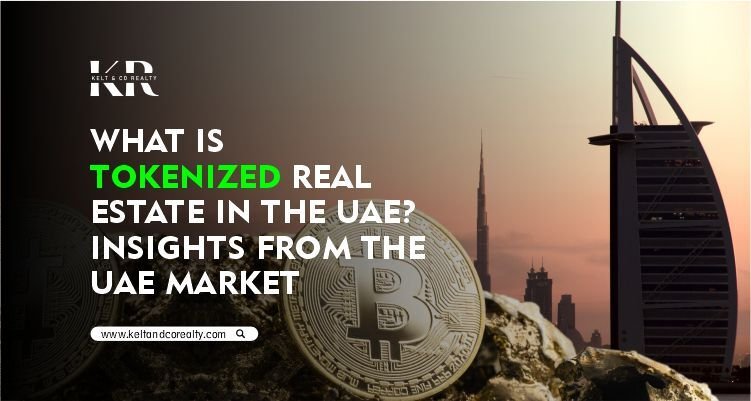
The real estate sector in the UAE is highly volatile and always in vogue to introduce the latest advancements to boost the investment market. Such an exciting innovation that has gathered much attention in recent times is Tokenized real estate. From the following guide, you will be able to gain an insight into Tokenized Real Estate in UAE, how it works, the potential that it holds to revolutionize the property investment industry, and within a broader scope, how it operates.
Tokenized Real Estate:
Tokenization of real estate entails the process of integrating tangible real estate properties into an organization through tokens in the blockchain. Each token is a tiny share in the property allowing investors to hold, sell, trade, and purchase real estate without investing in large, hefty portions of it. This process, therefore, applies a blockchain approach to facilitating uncomplicated and secure property deals.

How Tokenization Works?
Tokenization involves several key steps:
Property Valuation:
The market value of the property is used to establish its value by a process called appraisal.
Legal Structuring:
From a legal point of view, property ownership is solved to enable the tokenization process, which frequently implies the usage of an SPV.
Token Creation:
The property is then tokenized in a digital form through the issuing of tokens that represent a percentage of the real property.
Distribution:
These tokens are given to investors for investment purposes through a connected network.
Trading:
Tokens as described by Hume and Powell can be traded in secondary markets just like stocks and this is an avenue through which investors can exchange, purchase and sell these tokens.
The Advantages of Real Estate Tokenization:
Increased Accessibility:
Enables retail investors to own a stake in real estate properties while investing in them without having to purchase the whole property.
Liquidity:
Improves liquidity through direct property investment and allows for the trading of property shares in secondary markets.
Transparency:
Through the adopted blockchain technology, there is enhanced transparency as well as secure and unalterable records of transactions.
Efficiency:
Simplifies the transfer of ownership and the performance of property sales, eliminating much of the time and expenses entailed in conventional real estate transactions.
Diversification:
Unlike investing in real estate, investors can own little fractional interests in numerous properties.
Global Reach:
Facilitates foreign investors to venture into the UAE real estate field without much strain.
Lower Barriers to Entry:
Eliminates the financial constraints that used to be standards whenever it comes to the investment in real estate.
Security:
Blockchain technology entails secure and irreversible processes, meaning that as transactions are made, they cannot be altered.
Fractional Ownership:
Enables individuals to own some good channels through the purchase of quality properties through pooling of investment.
Innovation:
The three objectives place investors and the market as strategic agents of technology.

Regulatory Framework:
Likewise, the UAE has been deliberate in providing a regulatory structure that can foster the utilization of the blockchain and tokenization in the ownership of properties. It is worth mentioning that innovations in this sphere have been driven by the Dubai Land Department (DLD) and the Emirates Securities and Commodities Authority (ESCA), which oversee that tokens of property are legal both in the locality and according to the laws of the world.
If you’re interested in Tokenized Real Estate in UAE, here are the steps you can take to become an investor in tokenized real estate.
Research and Selection:
Therefore, anyone intending to invest in tokenized real estate should commence with identifying existing tokenized real estate projects within the UAE. The essentials to consider include the location of the property to be invested in, the market value of the property, the potential for growth in value and the platform offering the tokens.
Platform Registration:
These tokens enable investors to directly buy and sell tokenized properties on a certain digital platform where one has to register such as those that deal with real estate properties. Here, one is required to check user identity and adhere to the Know Your Customer (KYC) requirements.
Investment:
After registering, investors can view available opportunities and acquire tokens using digital currency, which means that they buy the rights to a fraction of the property of a specific asset. Fiat currency or digital currency depending on the platform that a person is using is the common form of payment.
Portfolio Management:
Once having received tokens, investors can also analyze their investment portfolios using the platform solutions to evaluate the performances of the properties, rental revenues, and potential appreciation.
Trading:
Tokens are easily marketable in secondary markets which benefits the investors as they can trade their tokens conveniently. This process may be compared to the buying and selling of stock shares in the stock market, which may be lucrative and help make gains from an appreciation in capital.
Challenges and Considerations:
Regulatory Uncertainty:
Keeping this in mind, while the UAE has been quite active in setting up the rules for tokenized real estate, there might be constant changes in regulations, with which potential investors need to align.
Market Volatility:
As with any other business investment, tokenized real estate involves risks that are associated with market instability. In the case of investing, thorough research and ensuring one is willing to hold a certain stock for at least five years is recommended.
Technological Risks:
Cryptocurrency is relatively safe, and the technology behind it is still emerging. When it comes to investing money online, the possible dangers associated with technological advancement must be known by the investors and opt for reliable platforms designed with the appropriate measures to secure an investment.
Final Thoughts!
Fractional ownership of property can be deemed as a huge leap forward in the context of Tokenized Real Estate in the UAE, as this type of investment provides various levels of accessibility, liquidity, and efficacy. In this way, investors can be closer to such a beneficial result, by using an innovative approach and offering the security of blockchain to those in the real estate industry, the opportunity to invest in one of the most promising regions can be found. Looking at the future of tokenized real estate, we are concluding that they will act as the bold foundation upon which property investment in the UAE is being built.
Get The Services Of Kelt & Co Realty To Ensure Smooth Real Estate Transactions:
Kelt & Co Realty offers real estate services and guidance to manage purchased properties. If you intend to buy real estate in Dubai no matter whether it is off-plan or ready to move in property, our experts are dedicated to providing the best services and bringing the most viable investment option.
FAQS:
What is the concept of tokenized real estate?
This real estate concept refers to the process that converts real estate assets into digital tokens. These digital tokens can be sold, bought, or traded on a blockchain platform, modernizing real estate transactions and allowing fractional ownership.
What are the benefits of tokenized real estate in the UAE?
Tokenized real estate allows fractional ownership opportunities, improved liquidity, accessibility to global potential investors and transparency because it is backed by blockchain technology.



